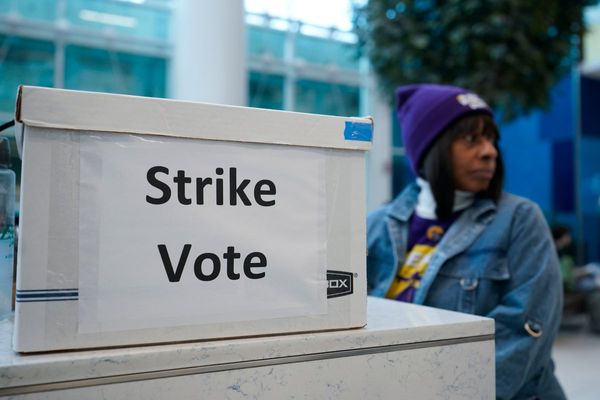Abbott stock popped Wednesday after shrugging off Wall Street's concerns that new diabetes and weight-loss drugs will undercut sales of its diabetes devices.
The third-quarter report comes amid worries new drugs from Novo Nordisk and Eli Lilly — known as GLP-1s — would undermine use of continuous glucose monitors, like Abbott Laboratories' FreeStyle Libre. Instead, Libre sales surged 28.5% organically to $1.4 billion during the three months ended Sept. 30.
Analysts note continuous glucose monitors can be an important complement to GLP-1 treatment, helping slowly increase dosage and track compliance.
"While Wall Street has gotten itself into a tizzy on GLP-1 fears, Abbott shrugged it off with a roughly 14% organic (sales growth) print," Evercore ISI analyst Vijay Kumar said in a report.
On the stock market today, Abbott stock advanced 3.7%, ending the regular session at 95.56.
Abbott Stock: Working With GLP-1s
Abbott stock has dropped markedly since July. In August, Novo Nordisk said patients who took its GLP-1, Wegovy, for five years had a 20% reduced risk of heart attack, stroke or other cardiovascular events. The news tanked shares of companies that make devices that treat obesity-related conditions.
Now, Abbott is spinning the narrative. But Edward Jones analyst John Boylan says it will take some time for investors in Abbott stock to grapple with the relationship between continuous glucose monitors and GLP-1 drugs like Wegovy, Ozempic and Mounjaro.
"Earlier in the quarter, Abbott articulated that its continuous glucose monitors for diabetics can work well with patients taking GLP-1s in helping them monitor their progress on the drug," he said in a note. "We also believe that GLP-1 and CGMs should work well together for patients."
Overall, Abbott's third-quarter diabetes segment sales climbed 24.5% on an organic basis to $1.47 billion and beat expectations for $1.43 billion, Needham analyst Mike Matson said in a report.
Nutrition Sales Recover
Across all segments, sales dipped 2.6% on a strict, as-reported basis to $10.14 billion during the third quarter. That beat projections for $9.82 billion, according to FactSet. Adjusted profit fell by a penny year over year to $1.14 per share, but also came in north of expectations for $1.10 per share.
Organically, though, sales climbed 14.7%. Covid tests brought in $305 million in sales, plummeting from $1.67 billion in the year-earlier period. Excluding the impact of Covid tests, total sales climbed 13.8%.
The best growth came from Abbott's nutrition business, which includes infant formula. After a voluntary recall last year, sales grew 18.1% organically. Trailing, medtech sales increased 14.7% and revenue from established pharmaceuticals — which sell abroad — rose 11.1%.
Abbott's diagnostics business grew 10.1% organically and excluding the impact of Covid testing sales. Including that impact, sales collapsed nearly 32%. Abbott and Wall Street expect continued declines for the Covid testing business.
For the year, Abbott raised the midpoint of its earnings guidance and now projects adjusted profit of $4.42 to $4.46 per share. The company still expects sales, excluding the impact of revenue from Covid tests, to climb by a low double-digit percentage, on an organic basis.
Abbott stock analysts forecast adjusted profit of $4.40 per share on $39.85 billion in sales.
Follow Allison Gatlin on X, the platform formerly known as Twitter, at @IBD_AGatlin.







